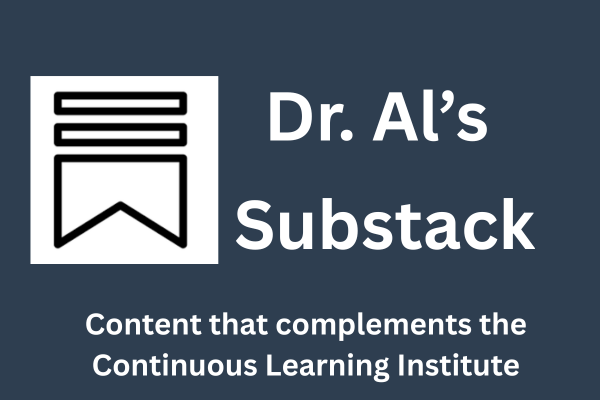Inspiring and Improving Outcomes for Disproportionately Impacted Students with Diego Navarro

LISTEN TO THE EPISODE
Learn how to inspire and improve outcomes for disproportionately impacted students.
A follow-up to a previous episode, it's a pleasure to interview again Diego Navarro, Professor Emeritus at Cabrillo College and Founder of the Academy for College Excellence.
In this episode, we focus on the "Inspire" aspect of the onboarding ACIP Model: Ask-Connnect-Inspire-Plan, developed by Columbia University's Community College Research Center.
Resource: Files that make up the activities, lectures, handouts and assignments for the beginning of the ACE Social Justice research course. It contains the activities that help students figure out what SJ topics are important to them.
Note: The materials are sequenced from 20315 to 20360. 20315 is the first time Diego Navarro introduced the topic of SJ in our course. Each numbered course has a letter following the number, e.g., 20330p1 (p stands for PowerPoint); or 20330h1 (h stands for handout and h1 is handout #1) and 20330 (with no letter following it which is the activity description that explains how to use the handouts and powerpoint).
When using the materials, please give attribution to Diego Navarro and the Academy for College Excellence (ACE).
Additional resource: The RP Group guide: Using Student Support (Re)defined Six Success Factors to Ensure Student Learning (Guided Pathways Pillar Four)
(Scroll down to access the transcript.)
We cover the following key topics:
3:02: Diego's first time experiencing a culture of healing.
9:02: How to transition educators from equity yellow lighters to green lighters.
Resource: The working styles approach utilized is powered by 5 Dynamics and are used in Simpli5.
20:35: Consequences of PD consultants who create an environment of threat.
22:10: Why marginalized students have a challenging time completing college.
33:05: Ways to inspire marginalized students.
49:30: Addressing the resistance mindset.
55:46: Diego's recent work and updates.
Select Diego Navarro episode quotes:
"I help faculty understand the strengths of our students because many of our faculty see the strengths of our students as weaknesses. For example, marginalized students know how to work in teams. We need to take that strength and start doing team based-learning with them. They've also overcome a lot of adversity in their life. They've dealt with trying to do things without having much money and much resources. They're very innovative and they're always solving problems. So how can we start doing problem-based learning with them so we can take that strength that they have and apply it."
"What we need to do in the creation of an environment for our students to inspire, is to create a culture of love. This is built on belonging--a pedagogy of belonging--which is built on psychological safety. We also need contextualize the curriculum for our students, and we do it through social justice themes and the way that we do it because social justice creates energy in students."
"Al, you mentioned professional development providers and how people get triggered on campus [by some these PD consultants]. There's science behind this--that when you trigger people, their cortex is shut down. Do you want people to learn or do you want them to just react? If they create an environment where it's a threat--threat means the amygdala searching for threat because once it sees that, it goes in fight, flight, freeze, or appease. They [PD providers] create an environment of threat. People are going to be heightened and they're going to be defensive. So what they have to do is create a culture of healing or a culture of dignity or what I like to call a culture of love. You have to open people's hearts. That's where the change really happens because as you open people's hearts and they feel safe, they can learn at an accelerated way--what I call deeper learning. So they're shooting themselves in the foot whenever they're creating these threatening environments."
About Diego Navarro
Emeritus Professor at Cabrillo College and Founder, Academy for College Excellence (ACE)
Diego developed ACE’s Five-day Experiential Learning Institute (FELI) in 2006 to teach faculty and staff how to have embodied interactions and employ non-cognitive learning activities to create psychological safety with students serving over 2,000 faculty from 90+ colleges. Diego’s research has been funded by the National Science Foundation, The Gates Foundation, Carnegie Corporation of New York and others.
Diego serves on the selection committee of the Aspen Institute’s Aspen Prize for Community College Excellence; Stanford Research Institute’s Education (SRI Education) NSF-funded Advisory Group on Employability Skills; and as a consultant with NCII Jobs Initiatives project. Diego accepted a Visiting Scholar appointment at the Carnegie Foundation for the Advancement of Teaching at Stanford during his sabbatical year. Diego also received the American Association of Community College Trustees, National Faculty Award in 2009.
Diego began higher education attending Pasadena City College. He received a Bachelor’s degree from Antioch College and received a Master’s Degree from Harvard University's Graduate School of Business.
About Dr. Al Solano
Al is Founder & Coach at the Continuous Learning Institute. A big believer in kindness, he helps institutions of higher education to plan and implement homegrown practices to improve student success and equity by coaching them through a process based on what he calls the "Three Cs": Clarity, Coherence, Consensus. In addition, his bite-sized, practitioner-based articles on student success strategies, institutional planning & implementation, and educational leadership are implemented at institutions across the country. He has worked directly with over 50 colleges and universities and has trained well over 5,000 educators. He has coached colleges for over a decade, worked at two community colleges, and began his education career in K12. He earned a doctorate in education from UCLA, and is a proud community college student who transferred to Cornell University.







